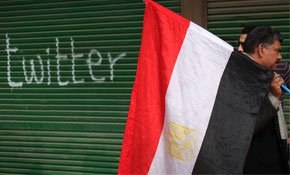The absence of reliable data is a perennial problem for observers and students of the Arab world whether they’re working inside the region or not.
Arab countries are almost totally opaque – we can only guess how many Libyans sincerely support Colonel Gadaffi for example or how many Algerians would prefer multiparty democracy to an Islamic state - and in most Arab countries asking these kind of questions can land you in jail for a long time. As a result, many basic questions go unanswered.
But in the wake of the Arab Spring there are signs this is beginning to change. For the first time in living memory Arabs in Egypt and Tunisia are preparing to go to the polls in what promises to be free and fair elections and information gathering opportunities in these newly free societies have never been more abundant. Using new technology, inspired by Wikileaks, many previously secret government documents are being published online for the first time, shining a new light on the workings of the state. Trying to understand what the Arab Street is thinking has never been more important - or easier.
Now with a $1000 laptop, a mobile phone and an internet connection a determined activist can create and distribute high quality media to a worldwide audience. With these tools tech savvy young people have shown themselves able to organise and evade the state security apparatus that until this year was widely perceived as invulnerable. The process of media creation and distribution, until recently the preserve of powerful media conglomerates and state information ministries, has suddenly been democratized.
No country in the region will be immune to the changes sweeping the region as despite their significant differences all Arab countries suffer the same toxic combination of political repression, corruption, a growing divide between rich and poor and a youth bulge. What happens next in Egypt is particularly important because history shows that where Egypt goes the rest of the Arab world surely follows but further revolutionary change is to be expected.








